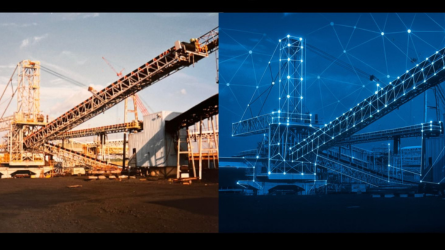The Quiet Revolution: How Industrial AI is Listening to the Operator

Source: Shail Khiyara, CEO at SWARM Engineering
In the grain world, success depends on a kind of quiet mastery- operators who know the hum of a conveyor, the weight of a full bin, the subtle shift in tempo that signals trouble. Their knowledge isn’t loud, but it’s essential.
For decades, these decisions lived in heads and hands, passed down through experience, not instruction manuals. Today, the complexity of operations has outpaced what any one person can track. But the answer isn’t removing people from the equation – it’s designing technology that works with them.
In this business, a half-point of shrink or an extra hour of truck delay isn’t a rounding error – it’s the week’s margin.
From Instinct to Insight
Grain operations aren’t static. Weather shifts. Equipment wears. Trucks run late. And through all of it, someone has to make the call. That judgment is shaped by pattern recognition and feel – factors traditional systems don’t register.
What if AI could? Not in the abstract sense, but in a practical, floor-level way.
This is where agentic AI comes in. It doesn’t dictate, nor automate for automation’s sake. Rather, it learns, observes, and adjusts. It becomes a system that proposes options, incorporates operator feedback, and improves over time.
In a recent harvest scenario from an example from SWARM Engineering, its AI solution modeled truck arrivals, storage capacity, and moisture variation to suggest efficient flows. But more importantly, it adapted as operators changed course – integrating those actions into its logic going forward. That’s collaboration, not control – saving millions of dollars in operating expenses.
Now imagine what’s possible: a facility spending over $100,000 annually on energy to move and protect grain – electricity, propane, aeration fans running round the clock. AI agents could learn the optimal times to run fans based on outside humidity and grain temperature, cutting unnecessary costs without compromising quality. This isn’t just a vision – it’s within reach. And it starts with listening to the data operators already collect.
Ground-Level Intelligence
Operators know more than what’s in the system. They see the early warning signs, know when to hold or push, and manage tradeoffs on the fly. AI that supports them must treat that expertise as part of the data, not outside of it.
“It’s about giving them better tools to make faster, more informed calls. It’s not about replacing decision-makers,” said SWARM Engineering CEO Shail Khiyara. “SWARM’s agent-based approach does this by aligning AI with specific operational goals – optimizing bin usage, reducing wait times, balancing shifts.”
AI should never mean more dashboards and more confusion. It should mean more grain moved with the same crew, less stress with better flow.
Technology with Respect
Too many AI tools treat frontline operations as a data source to exploit, not a partner to empower. That’s a mistake. The real advantage comes from marrying intuition with intelligence—preserving what works and elevating it with speed, transparency, and repeatability.
Progress doesn’t require perfection. Most grain sites already have 70% of the data needed to get started. The key isn’t to boil the ocean—it’s to start with one clear pain point and prove value in 90 days. That’s how trust is built, and transformation takes root.
When we talk about transformation in this space, it’s not about flashy dashboards or automation headlines. It’s about:
– Turning planning cycles into real-time, adaptive loops
– Reducing the firefighting that burns out teams
– Making operations smoother, smarter, and more resilient
This isn’t disruption. It’s respect that is coded in.
What’s Possible—and What It Leads To
What’s possible is already underway in facilities across the industry. Grain elevators are reducing truck bottlenecks using real-time arrival data. Aeration fans are being scheduled more precisely to save energy without compromising grain quality. Shrink is being predicted earlier using historical moisture trends. And all of this is being done with data most sites already collect.
The approach isn’t radical, but targeted. Start with one site. One problem. Run a 90-day pilot. Measure results in throughput, energy saved, hours recovered. That’s how you build trust, justify scale, and create lasting value.
And what’s the outcome? Grain moves with less stress. Operators are empowered, not overburdened. Margin returns. Waste falls. And the knowledge built over decades? It doesn’t walk out the door. It stays. Learns. Scales.
This isn’t just optimization. It’s operational continuity. It’s dignity in the work and the edge that lasts.
A Smarter Kind of Listening
Let’s build systems that pay attention. That learn how trucks are rerouted when conditions shift. That notice how seasoned operators schedule to manage energy, not just hours. Let’s turn judgment into logic. Let’s turn experience into equity.
Because in this industry, the real edge doesn’t come from software alone. It comes from systems that listen first—and decide second.
That’s the quiet revolution.
And it’s already begun.
Above Image:
Designed by Shail Khiyara, built in 1995 in Lake Charles, Louisiana. Tubular steel with full rotational, horizontal, and vertical movement, anchored by a 150-ton counterweight. Still standing and operational.
###
About GEAPS
The Grain Elevator and Processing Society (GEAPS) is an international association of grain handling and processing professionals. GEAPS provides its members opportunities for networking, training and education, and access to a global marketplace of industry suppliers. The collaborative effort between GEAPS and its multimedia company GEAPS Media Group (GMG) expands reach in the industry and adds resources for members. GEAPS’ global network includes over 4,000 individual members from approximately 1,000 companies. Join our network today!
Contact:
Kari Tusler
Communications Manager
kari@geaps.com
763-647-5372


